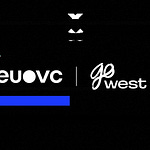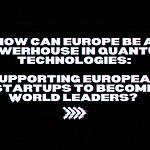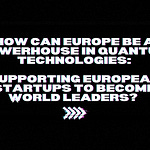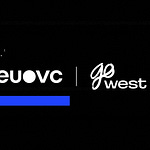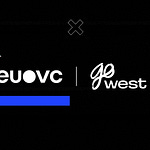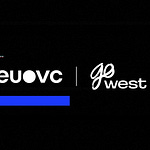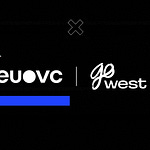In this episode of the EUVC podcast, Andreas sits down with Michael McGraw, Principal at Inovia Capital, a Venture Capital firm headquartered in Canada but making waves in Europe.
Inovia has €2.4B in assets under management and a track record of backing companies like Cohere, Lightspeed, Neo4j, and Wealthsimple. Mike brings a unique perspective shaped by his journey from LP at CDPQ—one of the world’s largest pension funds—to leading growth-stage investments at Inovia. Together, we’ll dive deep into the evolving role of European LPs, exploring why embracing a higher risk appetite could yield outsized returns and drive systemic innovation.
We’ll also discuss Inovia’s strategy for scaling Series B to pre-IPO companies across North America and Europe, shedding light on key challenges and opportunities in the software space. Whether you’re an LP curious about market dynamics or a founder navigating growth-stage fundraising, this episode is packed with insights you won’t want to miss.
Watch it here or add it to your episodes on Apple or Spotify 🎧 chapters for easy navigation available on the Spotify/Apple episode.
Join Europe’s premier PE/VC conferences with Zero One Hundred Conferences!
From Vienna (Feb 18-20) to Amsterdam (Apr 2-4) and Budapest (May 14-16), the 2025 Zero One Hundred Conferences offer intimate, carefully curated networking with top decision-makers from firms like 500 Global, Balderton, EIF, Eurazeo, Id4 ventures, IOME Family Office, In-Q-Tel, KfW Capital, SOSV, Teachers' Venture Growth, UBS AM, and more!
✍️ Show notes
Deep Dive: European LPs and why a higher risk appetite could pay for itself.
Mike’s perspective is hard won: he was an LP at CDPQ, one of the world’s largest pension funds, and now he's a VC for a global firm in London.
Canada, the Europe of North America (setting the stage)
Structurally, Canada shares a lot of similarities with European countries, from having top tier universities to active government support and robust social benefits.
VC ecosystem is similar to Germany, France and Sweden in terms of capital invested and unicorns
It has also followed the same trajectory with growth stage VC really taking off over the last 5-7 years, a good wave of exit during that same period and the emergence of startup mafias and repeat founders. The flywheel has fully come into motion
All of this has been a very long time in the making. For instance, the Canadian government launched the Canadian Institute for Advanced Research in 1983. Its objective was to finance fundamental research for the advancement of humanity. Its first program was for AI and Robotics and led by Geoffrey Hinton who last week won the Nobel Prize for his work in AI. That’s been forty years in the making.
Many authors from the paper Attention is All You Need actually came from the Canadian education system, including some that studied directly under Hinton
CDPQ’s strategy: plan decades ahead (where does pension money come into the equation)
The one thing Canada has over Europe is a very well structured pension system, often referred to as the Maple 8 who oversee over €1.3T trillion in assets
I joined CDPQ to help launch the Funds and Technology team. The institution was already doing some VC but the growing ecosystem warranted a dedicated team
At face value it isn’t scalable to build a team writing cheques as low as $5-10M for an institution managing hundreds of billions of dollars. However, my view is that CDPQ understood three things: (i) these $5M investments pay for themselves, (ii) they’re required to eventually unlock the $100M+ investments further down the line, and (iii) the stronger ecosystem will benefit the regional economy on which CDPQ depends to get its pension inflows. It just takes time.
CDPQ decided to go even further, helping launch a physical hub for VC offices in order to foster collaboration across the ecosystem and make it an easy go-to place for founders looking for funding. You can think of it as the Sand Hill Road of Montreal.
That strategy is already showing some results today. It has lead to the emergence of several multi-billion-dollar businesses like Lightspeed POS, Hopper, Wealthsimple and more. Shopify itself was financed by OMERS, another one of the Maple 8.
European fundraising observations to date
I haven’t seen as much of that mindset from private European LPs. There are quite a few state development banks which we also have in Canada, but very few scaled private players with ambitious long term mandates.
Part of the issue is a lack of scale. The Canadian Maple 8 average €160B per fund compared to the average of €4B for each of the 86 government pension schemes in the UK. That’s something which is being discussed currently.
It’s also impressive how many LPs simply do not have a VC mandate. I was meeting with a placement agent a few weeks ago and I asked why none of their marketing materials mentioned VC. Her answer was simply that they view it as part of Private Equity. While that’s technically true, it does point to the underlying impression that it’s not meaningful enough to be its own category. And quite often, those who do only go for mega-funds in the US (though that seems to be changing)
I believe that another potential challenge is the lack of commercially-driven incentives for the private sector. In addition to its development bank, in 2013 Canada launched its Venture Capital Action Plan. The program committed $400M across various Canadian funds of funds managers with the state money being First In, Last Out. This means that the additional capital raised by these FoF was Last In, First Out, which can be a boon for IRR. These FoF raised $900M of private capital off the back of the $400M invested by the government. I view this incremental return as exactly what’s required to compensate for the higher risk premium associated with a nascent ecosystem.
In my view that approach brings less distortion to the market than having funds with tax incentives which then allow them to bid up asset prices. It’s also more efficient from a bureaucracy perspective because state organizations are mostly involved at the beginning of the program and then it’s taken over by private managers until it’s renewed a few years later.
Ultimately the issue is not only that Europe is missing out on the next OpenAI. It’s that if that OpenAI is launched like Mistral, a significant chunk of the capital will come from US pension and hence the returns will also go to the US.
A 2023 analysis made by Redstone found that US pension funds have invested approximately 5bn into the German companies with unicorn valuations. German pension funds have invested max 90 million in the same companies.
The person behind
I come from a family of entrepreneurs and I’ve seen both extremes: my mom has been running her own magazine with an employee and a half for the past 25 years while my dad was a VC turned entrepreneur who launched a graph database business 15 years ago which ultimately didn’t make it. This means I’ve experienced all the highs and lows of entrepreneurship and it gives me immense empathy for the founders I speak to.
Funnily enough, at Inovia I ended up investing a significant amount of money into Neo4j, another graph database company. 12 years after my dad’s business went under… Full circle!
Two sayings I’ve learned from my boss and mentor are “when in doubt be generous” and “life is long and the world is small”. It might be very Canadian of me, but I’ve been blown away by the value I’ve received from people I helped years back simply for the sake of it.
Three biggest learnings in venture
Just get out there. Having worked in a big pension where everything comes to you and then Inovia, which also gets a ton of inbound given its dominant position in Canada, it took me a while to adapt my strategy in Europe. In the early years I also had to learn not to take it personally or care if someone didn’t want to engage. Pretty basic stuff for anyone that’s been train in an outbound-driven environment, but I definitely let my ego drive some decisions too much in the beginning. The comfort came with repetition of just doing it and also increasingly believing that what Inovia’s value add of supporting European businesses into their US expansion is quite differentiated.
Spreadsheets will only take you so far. My first job out of university was in big private equity where you’re quite far removed from the actual operations. I started working under former operators at CDPQ and especially at Inovia, which is very operator-led (former Google and Blackberry CFOs as partners). When I entered the venture world, I quickly learned to think about spreadsheets as a 2D representation of a 3D reality. I still care about metrics a lot, but I find a lot more enjoyment trying to understand what they indicate in terms of the people and operations behind them. Similarly, I’ve had many founders express their appreciation for more operationally-minded conversation vs. a siloed focus on their net dollar retention.
The importance of optionality and planning for liquidity early on. The whole world of fundraising right now is about DPI and I’m feeling that myself as an LP across Inovia funds. What I’ve learned though is that it’s rarely a switch you can just flip. The reality is that the best exits are manufactured years in advance and it needs to be an explicit consideration, be through partnerships with potential acquirers or simply making sure that the FP&A function is IPO-ready. And even if it’s only for the VC itself it doesn’t have to be at the detriment of the business at all, especially given the rise of secondary markets and continuation vehicles nowadays.
Strongly held belief you’ve recently had to change your mind on
Less of a controversial viewpoint, more of a philosophical / wellbeing one. People often say time is your most precious resource and while that’s partly true, I’ve come to realize in the last year that headspace is even more important. I’ve realized that even if I created downtime for myself, I usually filled it up with audio books, podcasts, music, tv shows, etc. Instead now I make sure to have moments for reflexion with no distraction whatsoever. It’s been incredibly nice to force that silence.
Top tips from VCs fundraising
Start yesterday. It’s no secret that in many instances LP relationships take years to build and a lot of the magic happens between fundraises. Similarly, at the micro level, you need to prepare for events months in advance. When attending conferences, I’ve learned that some LPs’ schedules are already full two months before the event.
Know your LPs well. Strategies change and people move around. Make sure to be smart about building enough relationships and buy-in within organizations that are strategically important. Think about what you need to do now not to have any regrets are your next fundraise. For instance, in my case, it was actually misunderstanding that a European LP team couldn’t make a decision about Inovia given the North American exposure and that their US counterparts are the decision-makers - spoiler alert, we had zero relationship there.
Do the work for them. LPs are incredibly solicited nowadays. If your story is not extremely straightforward and easily digestible, then it’ll be dead on arrival. For example, when fundraising our last venture fund I actually created a standalone presentation about “why Canada” for a Canadian pension institution. They didn’t know their own backyard well enough and I had to make it seamless for them to learn and ultimately convert. Another example could be to clearly map out the path to a 3-5x+ for each existing fund instead of having the LP try to guess it.
Some things are made for platforms - music, cabs & pizzas. But fund solutions aren’t one of them. Their individual client focus and regulation-first approach is your guarantee for flexible solutions accommodative to a broad range of deal and client specifics. The kicker? Prices that match any of the shelf-products in the market.
🤗 Join the EUVC Community
Looking for niche, high-quality experiences that prioritize depth over breadth? Consider joining our community focused on delivering content tailored to the experienced VC. Here’s what you can look forward to as a member:
Exclusive Access & Discounts: Priority access to masterclasses with leading GPs & LPs, available on a first-come, first-served basis.
On-Demand Content: A platform with sessions you can access anytime, anywhere complete with presentations, templates and other resources.
Interactive AMAs: Engage directly with top GPs and LPs in exclusive small group sessions — entirely free for community members.
🧠 Upcoming EUVC masterclasses
Advanced small-group sessions that take you from good to great. Lectured by leading GPs, LPs & Experts.
✍🏻 EUVC Masterclass | Marketing & VC Fund Narrative
Your brand is everything. It’s what sets you apart, helps you win the best deals, attract LPs, and ultimately drive your growth. For emerging fund managers, building a credible brand and establishing the right marketing foundations early on are game-changers. Yet, many don’t know where to begin.
Your fund’s narrative is what makes the difference between an LP glancing at your deck or deciding they’re ready to write a check. It’s your brand that makes LPs feel confident they’re partnering with someone who knows how to make magic happen.
We’re planning a masterclass on building strong marketing foundations with a top industry leader. If enough people show interest, we’ll make it happen.
🗓️ The VC Conferences You Can’t Miss
There are some events that just have to be on the calendar. Here’s our list, hit us up if you’re going, we’d love to meet!
GoWest | 📆 28 - 30 January 2025 | 🇸🇪 Gothenburg, Sweden
Investors Summit Bilbao 2025 | 📆 11 - 12 February 2025 | 🇪🇸 Bilbao, Spain
0100 DACH 2025 | 📆 18 - 20 Feb 2025 | 🇦🇹 Vienna, Austria
0100 Europe 2025 | 📆 02 - 04 April 2025 | 🇳🇱 Amsterdam, The Netherlands
0100 Emerging Europe 2025 | 📆 14-16 May 2025 | 🇭🇺 Budapest, Hungary
GITEX Europe 2025 | 📆 23 - 25 May 2025 | 🇩🇪 Berlin, Germany










